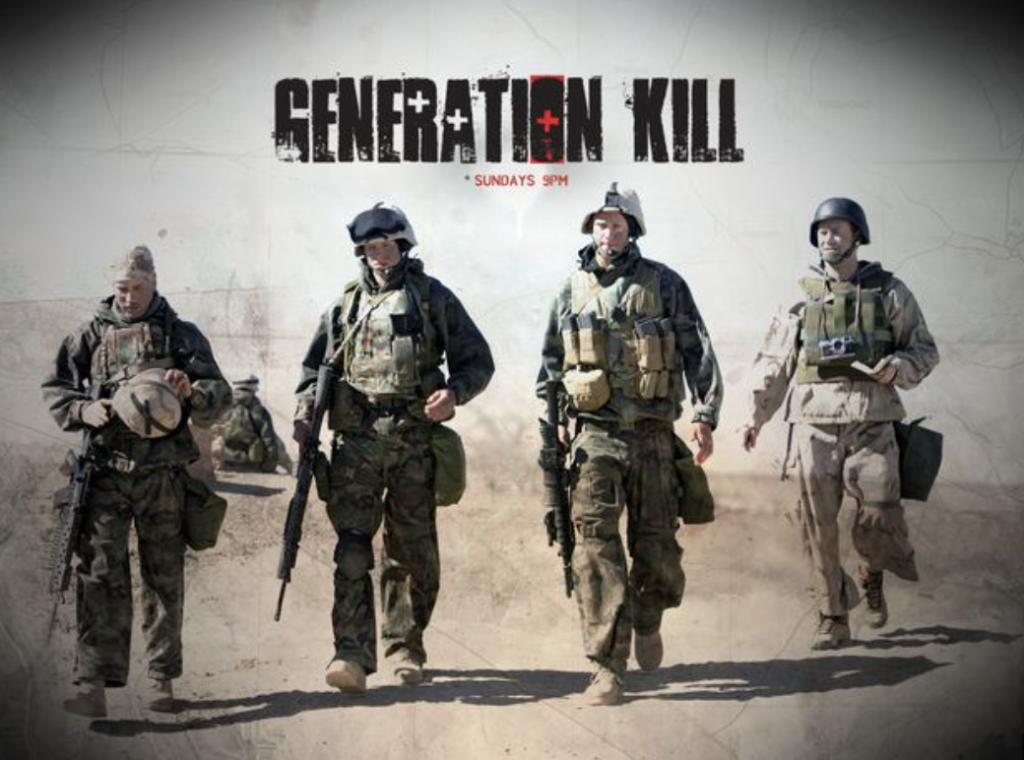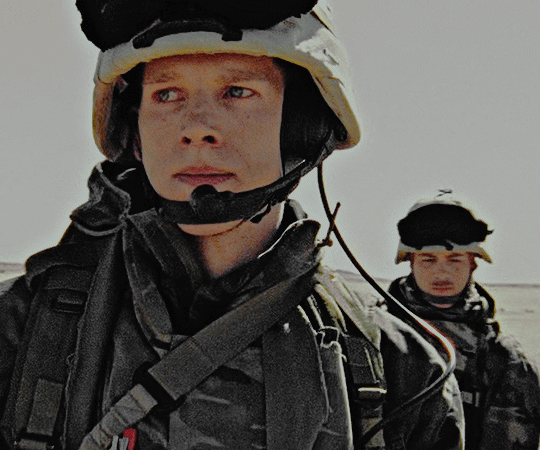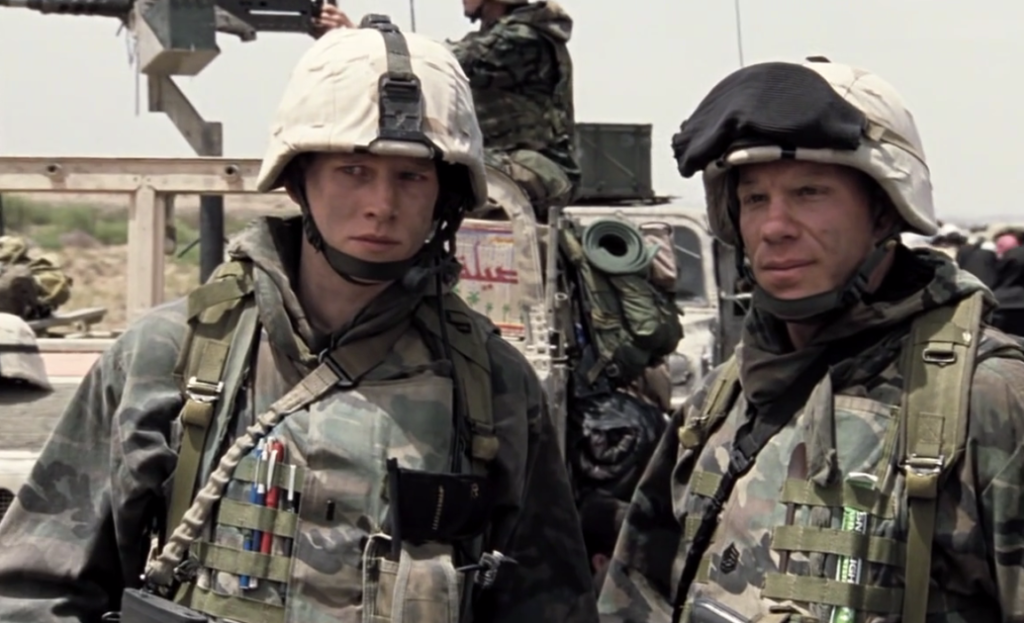They say when we get sick, we tend to desire what feels innately the most comfortable to us. Be it food for our body or our brain. I attest that is true. When I fell sick to some peculiar combo of virus and bacteria double whammy infection earlier this year, all I wanted was binging on all my favourite military classics.
And I did – from Black Hawk Down to Sicario, I was indulging hard. After successfully accomplished my mission of rewatching all the classics, I found myself reluctantly searching for new modern warfare dramas.
Finally, one HBO production stood out for its realistic portrait of a Marines First Recon Battalion’s experience as the first boots on the ground in the American invasion of Mesopotamia in 2003, called Generation Kill.

The show was based on a book by a field journalist who stayed in the trenches with these Marines for months and all of the characters in the platoon he travelled with went onto different industries and fields post-Iraq.
One particular character, Lieutenant Nate Fick, left a mark on me so much so that I am inspired to end a little 3-week break from writing to document the lasting impact he has created on me. For simplicity, let’s call him Lt. Fick (though technically he was promoted to Captain before leaving the Corps after the Iraq deployment).
He’s a Dartmouth Classics graduate who chose an unconventional path to enlist into the Marine Corps and served in the Afghanistan before Iraq. He went onto Harvard Business School after the military, started a business in the cybersecurity space before becoming active in politics as the U.S. Ambassador at Large for Cyberspace and Digital Policy. He’s also a prolific writer and published a New York Times Bestseller “One Bullet Away” in 2005.

When I casually decided to give Generation Kill a watch, I didn’t expect to be reminded of what it is like to be a leader by Lt. Fick in almost every episode 🙂 I simply didn’t appreciate how much similarities a 25-year-old platoon leader on the frontline has with a leader running a team of any size in a civilian organisation.
Of course, there are important differences – the tradeoffs at stake between the US military and a civilian organisation are very different: not everyone of us are weighing our decisions measured by lives of young Marines and Iraqi civilians.
While Lt. Fick’s ability to make heavy decisions between a rock and a hard place – accomplishing a mission vs protecting the lives of young men serving in his platoon – is commendable, it’s the way he went about in those decision making and how he chose to react to what’s uncontrollable that left a mark on me.
First, even when he’s not entirely bought into a mission, he’d still agree to disagree and move on very quickly to mobilise his unit to accomplish what he’s asked to do. And you could never find him questioning or disrespecting the decision in front of his men.
Second, he demonstrated an incredible ability to quickly decide what’s controllable and what’s not and focused his entire energy on what he could impact and the difference he could make. And you could never catch him making the slightest effort to claim well deserved credits.
Most importantly, he tried to make every combat decision with a high moral compass that included not just a sound judgment but also incredible courage to say no to his direct line of command when he deemed a sacrifice not necessary or preventable.


One true story in the show captures the essence of Lt. Fick’s leadership well –
When his direct line of command (Captain Craig Schwetje) tried to call in a “danger close” Airstrike, Lt. Fick knew it was unnecessary and could in fact hurt the Marines stationed “danger close” to a target that’s no longer a threat. He quickly stepped in and held the line against the Captain and only walked away after confirming the Captain was reporting a wrong set of coordinates to the Navy Airforce (luckily and ironically).
Not only did he not broadcast the fact that he potentially saved a dozen Marines’ lives at all, he defended the Captain and booted off a few Marines who came to comfort him having witnessed what happened. Even though this incident brought him unfounded rumours and allegations for disobeying orders (it’s the military after all), he chose to hold a high moral compass and move on quickly by reengaging fully in his duties.
Putting myself in Lt. Fick’s shoes, I am not sure that I’d have the strength to resist the temptation to tell everyone and their mothers how incompetent Captain Schwetje was and how I saved the day. More importantly, I am not even sure that I’d have the courage to stand up in the first place, let alone the capacity to process the rumours and allegations on my own.
As I watched the series unfolding, I came to admire Lt. Fick for many things – his unparalleled conviction to stand up for what’s right, his exceptional ability to make swift decisions and move fast, his genuine desire to protect and challenge his team, and his unwavering strength to not compromise his standards even when it’s in his favour to.
I also came to appreciate the new perspectives I am learning to exercise, blessed by that small decision to watch Generation Kill – When a few uncontrollable episodes and events happened after, I found myself sitting quietly and pondering: What would Lt. Nate Fick do?
The answers I landed on and exercised, helped me move on from unfortunate events and saved me from what might have been catastrophic decision making.
If you’ve not watched Generation Kill and also appreciate modern military genre, I cannot recommend enough. If you are also a fan of the show, time for a rewatch and you might arrive at the same place as I do today:
When making hard decisions – What would Lt. Nate Fick do? 🙂